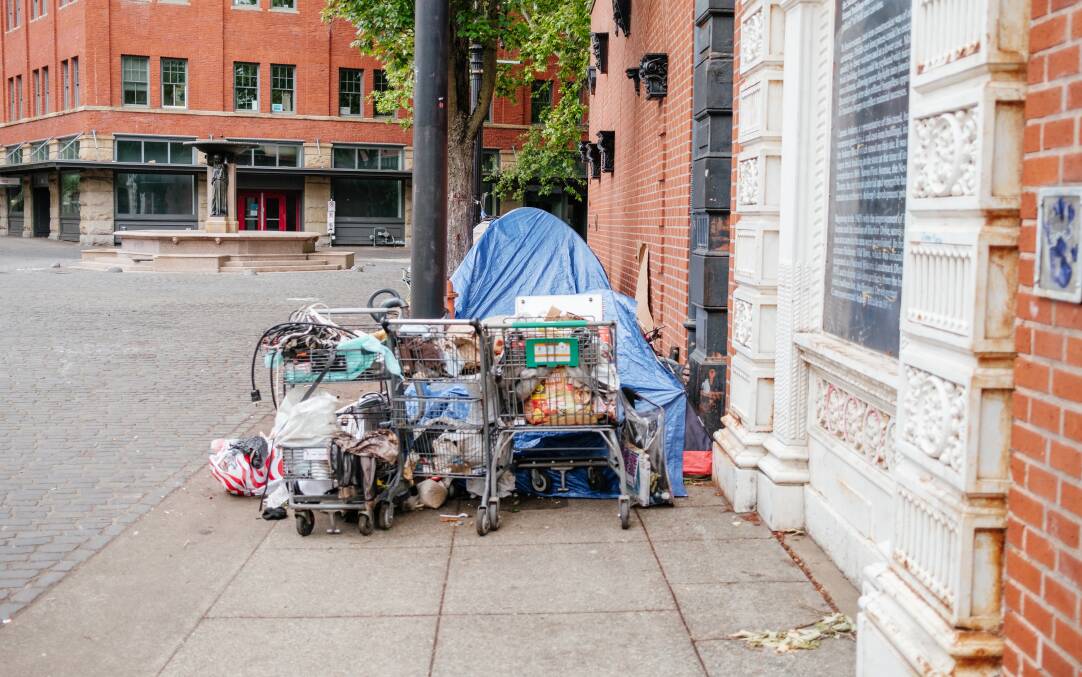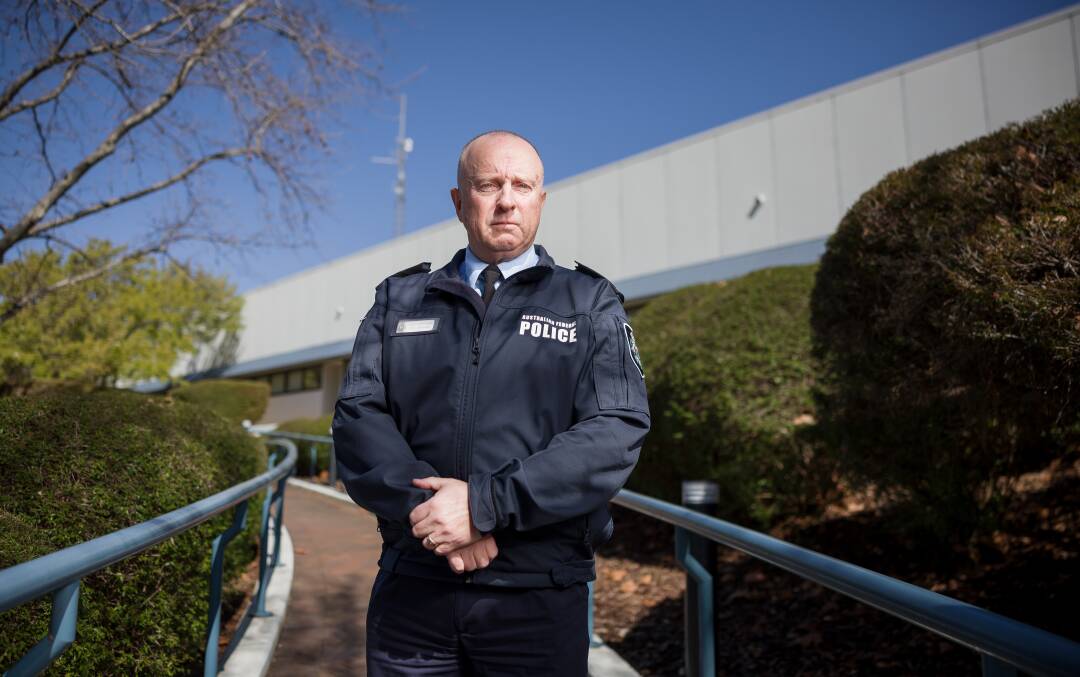When the citizens of Oregon, in the United States, voted in late 2020 to decriminalise the personal possession of small amounts of illicit drugs, they thought they were taking a step forward.
But just three years on, even some proponents of drug decriminalisation don't think it is working.
As the ACT begins to see what the ramifications are of its own drug decriminalisation shift, what does the Oregon experience suggest Canberra's future could hold?
Oregon is in the middle of a drug crisis and treatment centres are being forced to turn away those seeking support. People say drugs are being used openly and the police have little power to do anything.
However, Oregon had a huge problem with drugs even before they were decriminalised and the state pushed ahead with decriminalisation before expanding treatment services.
The state's treatment services are so dire it is ranked last in the United States in providing access to addiction treatment.
Oregon's drug decriminalisation policy is similar to the ACT. Those caught with drugs within an allowable limit are given a $100 fine or attend a diversionary program.
Oregon's drugs woes have been held up as an example by opponents of the ACT's drug laws but the approach is vastly different.
'Just irresponsible'
The decision to decriminalise drugs in Oregon was left in the hands of voters. There was a vote in November 2020 and more than 58 per cent of voters said yes to decriminalisation.
The policy, dubbed Measure 110, came into effect on February 1, 2021, only three months later.
Millions of dollars of funding was supposed to also be given to treatment and harm reduction services but this was slow to flow through meaning decriminalisation happened before the appropriate supports were in place.

Mike Marshall co-founded Oregon Recovers, an addiction recovery advocacy group. Mr Marshall, who is also the group's director, said the money allocation was poorly implemented as there was no planning for it.
"The money didn't go out the door until [autumn] of 2022. So we stopped arresting people on misdemeanour charges in February 2021. We didn't actually send money to build a new service of care until 18 months later," Mr Marshall said.
"It takes a year to get things up and running, especially when you're creating stuff. We're just now beginning to see the true benefits of it."
Mr Marshall said he did not think voters would have voted in favour of decriminalisation had they been aware of this.
A recent survey of Oregonians, conducted by DHM Research, found 63 per cent of voters supported bringing back criminal penalties for drug possession. More than 6 in 10 respondents also believed it had made drug addiction, homelessness and crime worse.
Oregon Recovers wants changes to the policy. The organisation is advocating for a higher penalty each time an individual is caught with drugs and if a person is caught five times within one year they should receive a single misdemeanour charge.
The group initially campaigned against decriminalisation in Oregon despite Mr Marshall believing in the policy intention.
"Criminalising people's addiction is wrong and we've seen that it has had disproportionate impacts on people of colour, in terms of the consequences of being engaged by the criminal justice system," he said.
"Criminalising people's chronic health condition doesn't make sense but at the moment it's where the most resources are located and we haven't built the alternative intervention system.
"Dismantling one system without first creating an alternative system is just irresponsible."
'Small ratio of police to public'
The number of drug possession related offences in Oregon has drastically dropped since the policy was implemented and this has been lauded as a success by advocates.
Before decriminalisation was implemented in Oregon there was an average of 1244 arrests a month. This dropped to 209 arrests in the months after policy implementation, a study published in the Drug Science journal found.
Police resources are stretched though. Mr Marshall said the policing workforce was only at about 70 per cent when the policy came into effect and writing tickets for all drug offences was too resource intensive.
"Oregon has traditionally had a really small ratio of police to public. One of the worst in the country," he said.
Portland Police Association president Sergeant Aaron Schmautz, in a Facebook post, hit out at the harm reduction policy saying it had failed.
"Harm reduction is, by definition, an effort to keep those suffering from addiction alive while striving to connect them with services," he said.
"Measure 110 has failed to get off the ground due to a lack of available service."
But some argue whether decriminalisation has been the major factor in Oregon's drug crisis.
The Drug Science study said Oregon had experienced an increase in the number of overdose deaths over the last two decades with "significant increases in the past two years". But the study noted this was the case across America as the increase was comparable to similar states.
"Critics have blamed Measure 110 for the increase in overdose deaths despite the lack of any research to date implicating Measure 110," the study said.
'Doing it the right way'
While Oregon and Canberra have a similar fine-based or diversionary approach to the possession of drugs the two are very different places.
Drug use was already much higher in Oregon pre-decriminalisation than it was in Canberra.
A study from the US Substance Abuse and Mental Health Services Administration found nearly 20 per cent of Oregonians aged over 12 had taken illicit drugs within the previous year. An ACT Health study from 2019 found 12.8 per cent of Canberrans had used illicit drugs over the year.
Fentanyl, an opioid, is a massive issue in Oregon but the drug is not prevalent in Australia, which ACT chief police officer Neil Gaughan has previously pointed out as a key difference.

When a person is caught with drugs in the allowable limit in the ACT these drugs will be confiscated but Oregon has a much more lax approach around this.
But the two places do have something in common as Canberra has the lowest number of police per capita in Australia. There were 205 police per 100,000 people in the ACT, Productivity Commission data has shown. The national average is 281.
Decriminalisation has only been in place in the ACT for one week and treatment services have yet to experience the consequences of the policy but services say they are not anticipating a significant increase in demand.
The implementation period was also much different. Drug decriminalisation did not come into effect in the ACT until 12 months after the legislation passed the territory's parliament.
Mr Marshall said it would be good to compare Canberra's experience with Oregon's in two years. He thinks the Canberra experience will be much better because of the wait to implement the policy.
"Canberra is doing it but they're doing it the right way," he said.
- Support is available. National Alcohol and Other Drug Hotline: 1800 250 015







